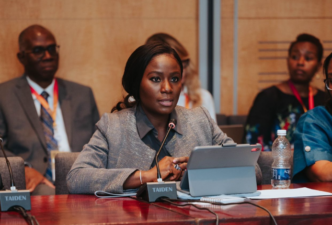BY WALE BAKARE
The rapid advancement of technology globally has introduced new avenues for enhancing governance, transparency, and accountability. In Nigeria, where public sector inefficiencies, corruption, and opaque government practices remain pressing issues, artificial intelligence (AI) has emerged as a potent tool for driving accountability. By harnessing AI, civil society organisations, media houses, advocacy groups, and citizens can hold the government accountable in unprecedented ways, ensuring that public resources are managed transparently and citizens’ voices are heard.
In Nigeria, AI is already being utilised to enhance transparency in public finance management. Organisations like BudgIT, a civic organization that applies technology to simplify the Nigerian budget and public spending for citizens, have incorporated data analytics tools to track government expenditures. BudgIT’s analysis has led to increased public awareness of budget misallocations. In 2021, BudgIT revealed that the 2021 national budget contained over 316 duplicated capital projects worth ₦39.5 billion, sparking public debates and calls for policy changes.
The media landscape in Nigeria has also benefited from the integration of AI. Investigative journalism organisations such as the Premium Times Centre for Investigative Journalism (PTCIJ), The Cable Newspaper and others use AI algorithms to cross-reference financial records, identify inconsistencies, and expose corruption. For instance, in an investigation into fraudulent public procurement contracts, PTCIJ used AI to analyse thousands of procurement documents, uncovering that contracts had been awarded to shell companies linked to government officials.
Advertisement
AI has proven valuable during elections, a critical moment for assessing the integrity of governance in Nigeria. The 2023 general elections saw an increase in the use of AI-powered tools by electoral observers. Independent monitors used machine learning algorithms to analyze election data and flag discrepancies in real time. This approach revealed inconsistencies in reported voter counts in some states, leading to greater scrutiny and pressure on the Independent National Electoral Commission (INEC) to improve the transparency of its processes.
Citizen engagement has been significantly boosted by AI-driven platforms that monitor and report on public sentiment regarding government policies. Tools such as sentiment analysis applications aggregate data from social media platforms and public forums, allowing NGOs and advocacy groups to gauge public opinion quickly and accurately. During the ##endbadgovernance protests, AI tools were used to track social media trends, quantify public sentiment, and understand the reach of protest messages. This data provided crucial insights that helped shape advocacy strategies and amplified citizens’ voices.
AI can also predict potential cases of corruption before they escalate. Machine learning models, trained on historical data, can forecast areas vulnerable to financial misconduct by government agencies. For example, predictive analytics tools have been used by civic technology organisations in collaboration with media partners, highlighting irregularities in COVID-19 relief fund distribution in Nigeria. Their findings indicated that funds were either mismanaged or diverted from their intended purposes.
Advertisement
The use of AI extends beyond tracking government spending and electoral monitoring. Legal AI tools are transforming how public interest cases are managed. Platforms like LawPavilion have integrated AI to streamline legal research and case file reviews. This helps legal practitioners identify precedents, understand case trends, and ensure that government actions are challenged in court when they violate the law. Such tools have supported lawyers in high-profile cases involving the misuse of public funds, leading to successful judicial outcomes.
Despite these strides, challenges persist. One significant barrier is data accessibility. Government agencies in Nigeria are often reluctant to share data openly, hindering the use of AI for transparency purposes. Additionally, inadequate infrastructure and limited digital literacy can stymie the full potential of AI. According to a 2023 report by the National Bureau of Statistics, only 35% of Nigerians had reliable access to the internet, highlighting the need for infrastructural investments to support AI-driven initiatives.
Ethical concerns regarding data privacy and AI use must also be addressed. Without stringent data protection laws, the deployment of AI could inadvertently violate citizens’ rights. Strengthening data governance frameworks and ensuring responsible AI practices are essential for maintaining public trust. The recent enactment of the Nigeria Data Protection Act 2023 is a positive step forward, but continuous enforcement and updates to the legal framework are necessary as AI tools evolve.
Collaboration between the government, tech industry, and civil society is key to overcoming these challenges. Public-private partnerships and investments in AI literacy programs can equip more Nigerians with the skills needed to develop and maintain AI systems. In 2024, the Data Science Nigeria initiative launched workshops aimed at training young Nigerians in AI and data analytics, fostering a new generation of tech-savvy advocates for good governance.
Advertisement
The road ahead requires targeted investment in AI infrastructure and skill-building programs. Nigeria must develop a workforce adept in AI and data analytics to maintain and enhance these accountability tools. Educational institutions and the private sector can play a vital role in producing professionals equipped to build and manage AI systems that support governance. This will not only ensure the sustainability of AI-driven initiatives but also foster an environment where the government is constantly held to account.
Holding the government accountable through AI is not a panacea but an essential piece of a larger puzzle that includes political will, legal frameworks, and civic engagement. While technology alone cannot combat corruption or enforce transparency, it is an invaluable asset that empowers Nigerians and advocacy groups to demand more from their leaders. By leveraging AI responsibly, Nigeria can make significant strides toward a more transparent, accountable, and democratic society.
Wale Bakare is a digital rights and digital inclusion advocate, co-founder/director of partnership and sustainability, Webfala Digital Skills for all Initiative. He can be contacted via [email protected]
Advertisement
Views expressed by contributors are strictly personal and not of TheCable.
Add a comment











